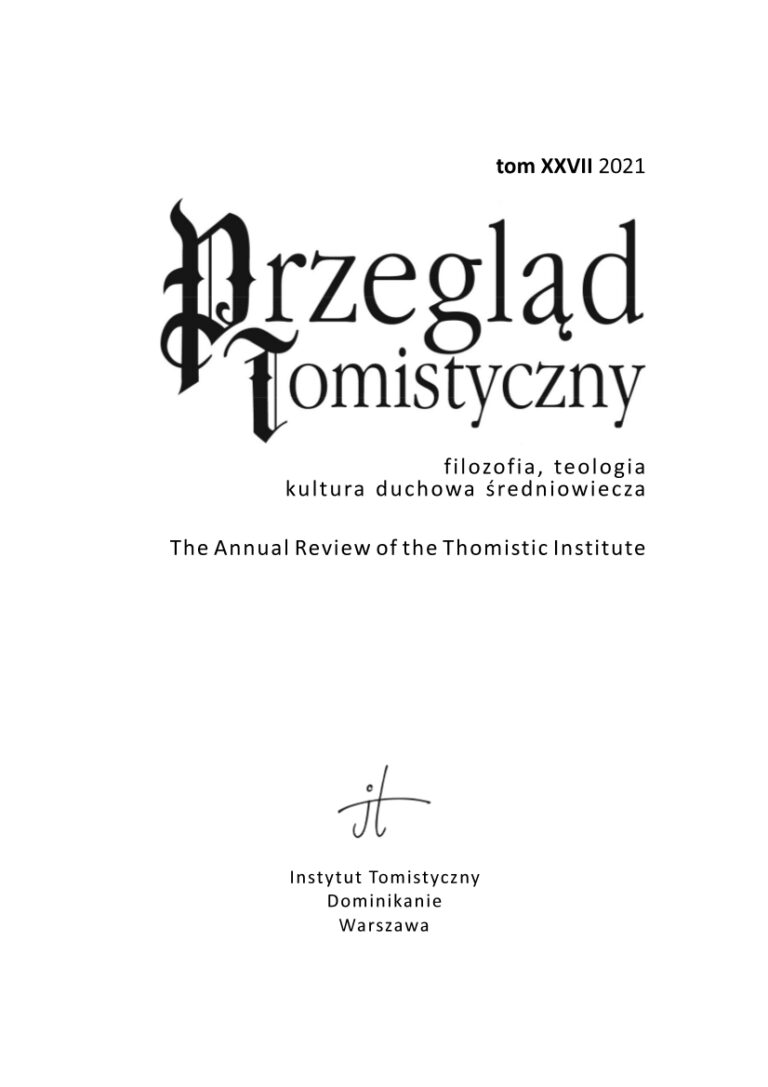MIKOŁAJ OLSZEWSKI, The Ethics of St. Thomas’s Quodlibets

Tom XXVII: 2021
Filozofia — Teologia— Kultura duchowa średniowiecza
ISSN 0860-0015
e-ISSN 2544-1000
SUMMARY
A significant part of St Thomas’s quodlibetal questions is devoted to moral issues. The very fact of their presence and frequency encourages us to question their general characteristics and their relation to other Aquinas’s ethical writings. Many of the gems of Thomas’s moral considerations as espoused in his Quodlibets can be explained by their literary genre, especially by the influence of their audience on the topics dealt with in them. As quodlibetal questions reflect the expectations and interests of their audience, it is obvious that they must touch current and urgent issues, constituting the body of themes comparable to contemporary publicist and world-view discussions. The topics discussed by Aquinas in his Quodlibets are centred around five notions: power, obedience, family law, circulation of money and goods, and the academic profession. The focus on those concepts and particular problems implicit in them is accompanied by an almost total absence of theoretical ethical issues (virtues, law, action in general etc.). Apart from the topics, there are some elements in the solutions of particular questions that recur in Aquinas’s Quodlibets and they seem to constitute a kind of a framework of his normative ethics: Thomas always shows the complexity of moral questions and rejects simplistic solutions; he places the emphasis on the consequences of our decisions in the wider social perspective (advices to avoid the scandalum, even if our conduct is justifiable in itself); he prevents from the destruction of the actual state of affairs in the name of a sudden and total moral revolution.
The listed features of Aquinas’s ethical reflection from his Quodlibets, although they are not totally absent in his remaining writings, seem to adequately characterise their contents and distinguish them. Ultimately, they seem to justify speaking about the ethics of Thomas’s Quodlibets.
